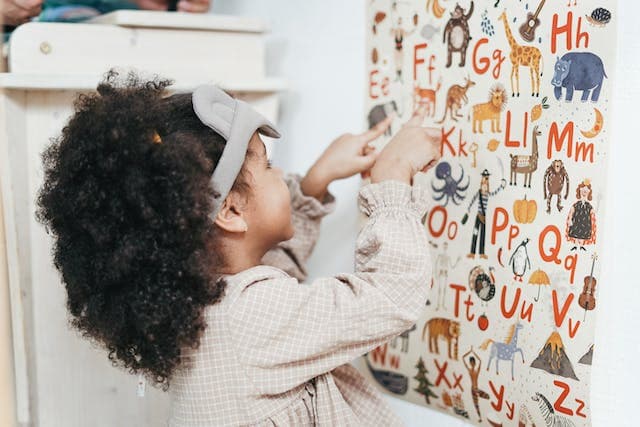Moving from the fun, play-based world of early childhood to the more structured formal school environment can be a huge change for parents and kids. One minute, your child happily finger paints and sings songs; the next, they face textbooks and timetables.
Feeling excited and anxious about this transition is normal, especially if it’s your first child. But take a deep breath. With some planning and empathy, you can make this a smooth, positive experience for your little one.
This article provides insights for a smooth transition. Read on for more!
1. Embrace A New Educational Landscape
Preschools and formal schools have different educational approaches. Early learning centers prioritize play-based discovery. The goal is to develop social skills, emotional intelligence, and a passion for learning through hands-on play.
Formal schooling adds more structure. Your child will still have some playtime, but there’s also an increased focus on mastering academic skills like reading, writing, and math. Routines, timetables, and benchmarks set expectations. It’s less about free exploration and more about gaining specific knowledge.
As a parent, it’s crucial to understand this fundamental change in approach. Have empathy for the adjustment your child faces. And collaborate with teachers to make the transition as smooth as possible.
It’s also crucial to research the best formal schools in your area. For instance, if you reside in Brookvale, you can easily search for the best childcare Brookvale schools. This allows you to find the most compatible school for your kid. You’d want one with experienced professionals and a close location to make it easier for you and your child.
2. Preparing For The Transition
Transitioning requires proper preparations. You’d want your child to be ready to face the challenges of formal school head-on. Therefore, you may want to consider the following tips to make the transition more adaptable:
- Foster independence
Formal school requires more independent skills. You can set your child up for success by building their confidence in self-care, organization, responsibility, and focus.
For instance, have them practice dressing themselves, from zipping jackets to tying shoes. Guide them in packing their school bag daily and assign simple chores at home, like feeding the pet or clearing their plate from the table. You can also set mini work-time limits for coloring or puzzles. This stretches their attention span for learning.
- Establish routines
Transitioning to formal schooling often requires more rigid routines. This can be harsh on the whole family, but you can ease the adjustment by slowly shifting routines at home.
Adjust bedtimes, wake-up times, and mealtimes a few weeks before school opens to align with the school schedule. Also, build in after-school time for homework based on the teacher’s guidance. This enables your child to adapt to the new changes that come with formal school.
- Understand their emotions
Starting school stirs a range of emotions for your kid. They may bounce with excitement one minute, then cling to you anxiously the next.
As a parent, acknowledge these emotional struggles. Understand that transitioning fear is normal, and reassure them that you’ll be there every step of the way.
For instance, you can tell them of the new experiences and adventures ahead. If they miss their preschool friends, assure them they’ll meet new friends who may become their best buddies for life.
- Build academic readiness
Preschool primes little minds with early literacy and math concepts. Formal schooling then takes this foundation much further. You can boost your child’s academic readiness at home through fun, daily activities such as reading together, practicing writing, and engaging in simple math activities.

3. Address Challenges
The shift from preschool to big kid school may come with some challenges. Even with preparation, your child may still struggle with academics, making new friends, or adjusting to the structured environment
If challenges arise, stay patient and collaborate with your child and teacher. Consider extra tutoring and one-on-one guidance from the teacher. You can also invest in learning tools tailored to their needs.
Discuss social situations and model positive interactions to build their confidence with peers. Also, reinforcing the necessity of school rules and schedules at home will help them adapt to the new environment.
4. Maintain Open Communication
Navigating this change requires teamwork between you, your child, and their teachers. Create an open dialogue with your kid. Listen to their worries without judgment and offer empathy and reassurance. You can also share your positive school memories to build their excitement.
For instance, you can tell them about the school trip you attended back then. Mention a few people you met who are still close. This will promote a good relationship with your kid and encourage them to stay positive throughout the transition.
Talk to the teachers as well. Provide them with preschool staff information about your child’s needs and strengths. Don’t forget to ask how they help students transition happily. Touring the school and meeting the new teacher also comforts you and your child.
5. Celebrate Milestones
The transition to formal schooling involves adjusting to new expectations and challenges. So, celebrate your child’s milestones, no matter how small.
Every step forward deserves recognition, from making new friends to completing their first homework assignment. Positive reinforcement boosts your kid’s confidence and motivates them to persevere through setbacks.
Conclusion
The transition from preschool to formal schooling marks a major milestone filled with chances for your child’s growth and learning. By preparing for the challenges ahead, you can provide the support your child needs to adjust smoothly. Encourage them with every step and celebrate their achievements—big or small—as they embrace this new adventure.

